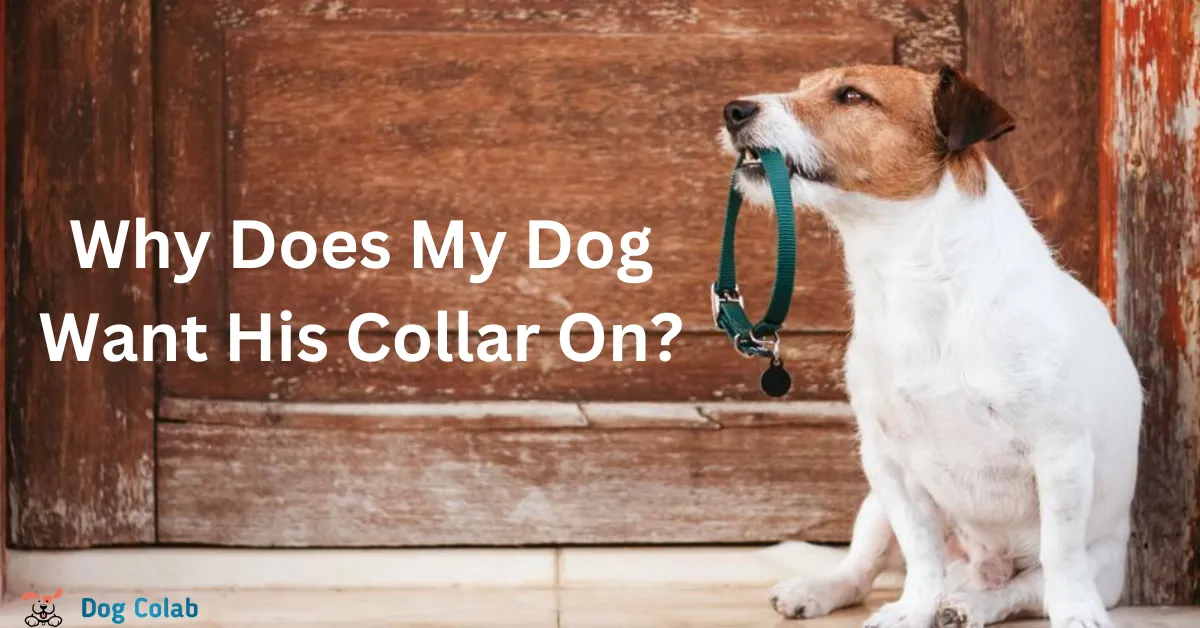When you put out your dog’s collar, does it get excited and shake its tail? Have you ever wondered why your dog loves wearing a simple accessory like a collar? Well, wearing a collar provide a sense of security and familiarity, as it becomes a part of their daily routine and symbolizes their connection to their owners. So, In this blog post, we will discuss why does my dog want his collar on as well as how to allow your dog to remove its collar.
Do Dogs Enjoy Wearing Collars?
The enjoyment or preference for wearing a collar can vary among individual dogs. Some dogs did not mind wearing a collar at all and may even associate it with positive experiences, such as going for a walk or receiving attention. For them, wearing a collar may become a familiar and comforting part of their routine.
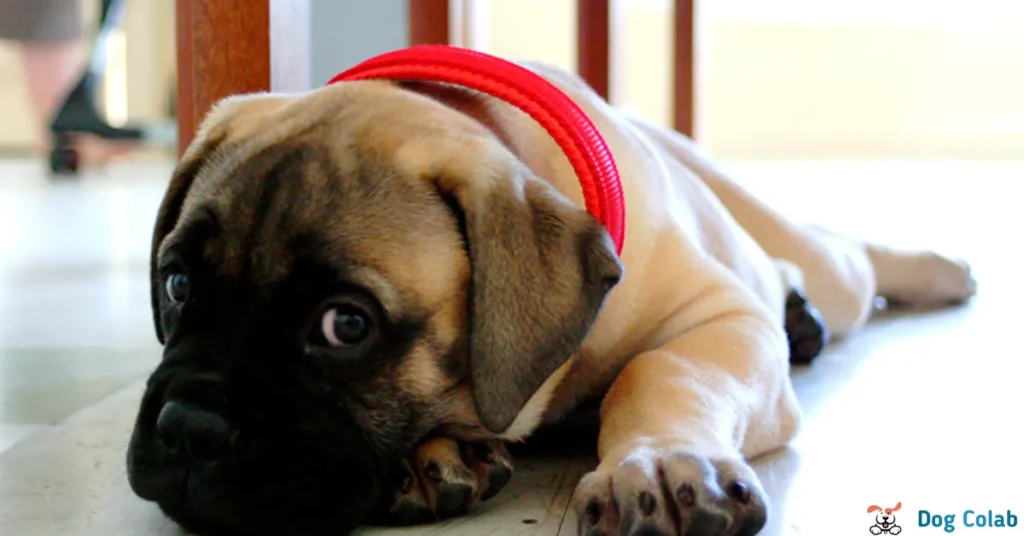
However, it’s important to note that not all dogs enjoy wearing collars, especially initially. Some dogs may find collars uncomfortable or unfamiliar, and it may take time for them to adjust. Factors such as the fit, material, and design of the collar can also influence a dog’s comfort level.
It’s essential for dog owners to introduce collars gradually and ensure they are properly fitted to avoid any discomfort or potential harm. Regularly checking for proper fit, avoiding excessive tightness, and using collars with padding or soft materials can help increase a dog’s comfort.
Are Collars Uncomfortable For Dogs?
Collars can be uncomfortable for some dogs if the collars are not fitted and made from rough materials, or applied with excessive pressure. A collar that is too tight can cause discomfort, restrict movement, and even pose a choking hazard. On the other hand, a loose collar can slide around and cause irritation or friction on the skin.
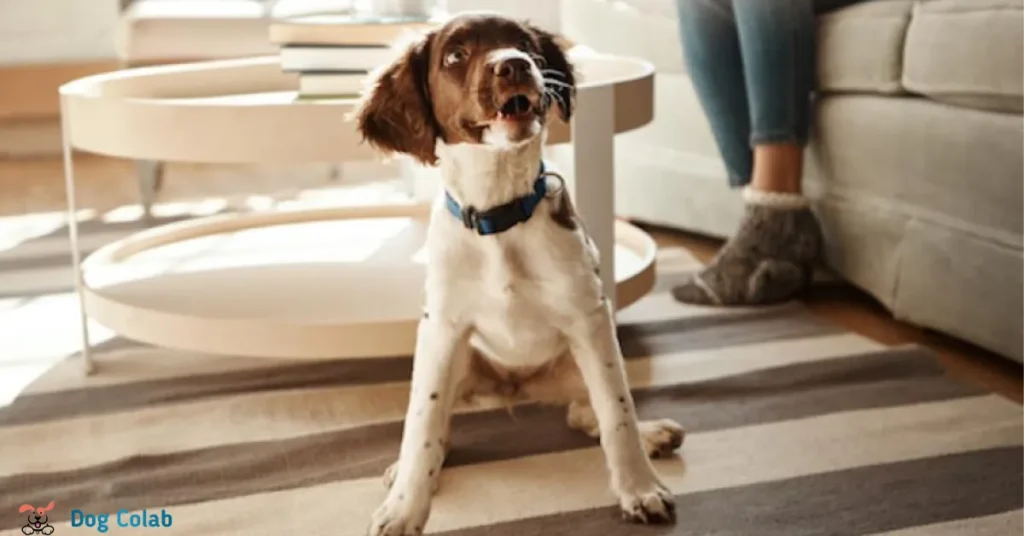
Certain breeds with shorter snouts, such as Bulldogs or Pugs, may have a higher likelihood of discomfort due to the pressure a collar can put on their breathing passages. Additionally, dogs with sensitive skin or allergies may experience irritation from the materials used in collars, such as nylon or metal.
It’s crucial for dog owners to regularly check the fit of their dog’s collar and ensure it is not causing any discomfort or harm. Choosing collars made from soft and breathable materials, such as leather or padded fabric, can increase a dog’s comfort level.
Some dogs may find alternative options, such as harnesses, more comfortable than traditional collars. Ultimately, it’s important to consider each dog’s individual needs and preferences when selecting a collar to ensure their well-being and comfort.
Why Does My Dog Want His Collar On? (6 Reasons)
There can be several reasons why does my dog want his collar on. Here are some possible explanations.
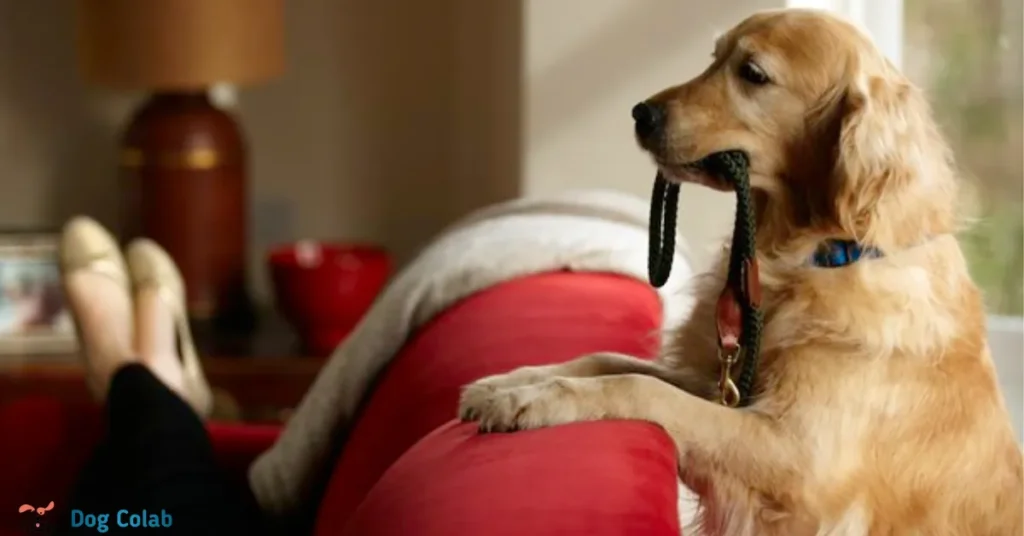
1. Identification
Dogs often associate their collars with going outside and going for walks. They may enjoy having their collar on because it signifies that they are about to engage in an activity they enjoy, such as exploring the outdoors or going for a walk.
2. Comfort and Security
Wearing a collar can provide a sense of security for dogs. The pressure of the collar around their neck can give them a feeling of being grounded and protected. It may provide them with a sense of boundaries and help them feel more secure in their environment.
3. Routine and Familiarity
The possible reason my dog won t let me take his collar off, is routine or familiarity. Dogs thrive on routine and are creatures of habit. If your dog is accustomed to wearing a collar, they may find comfort in the familiar sensation of having it on. It becomes part of their daily routine, and they may feel more at ease when wearing it.
4. Positive Associations
If your dog has had positive experiences while wearing a collar, such as receiving treats, going for walks, and getting attention, they may associate the collar with these positive experiences. As a result, they may actively seek out the collar as a way to signal their desire for those enjoyable activities.
5. Sensory Stimulation
Dogs have a heightened sense of smell, and collars often carry scents from various environments they have been in. The collar may hold interesting smells that your dog finds stimulating and engaging, providing them with mental stimulation and sensory exploration.
6. Training and Conditioning
Another possible reason why does my dog want his collar on, is training and conditioning. If your dog has been trained to associate the collar with rewards or specific behaviors, they may naturally want to have it on as a means of prompting those rewards. For example, putting on the collar may signal that it’s training time or playtime, which can be highly motivating for dogs.
Do Dogs Get Attached To Their Collars?
Dogs can develop an attachment to their collars. Collars often become a familiar and comforting object for dogs, as they wear them daily and associate them with certain activities and routines. Dogs may perceive their collars as a symbol of their identity within their family or pack. The collar may carry scents, such as their own or their owners, which provide a sense of familiarity and security.
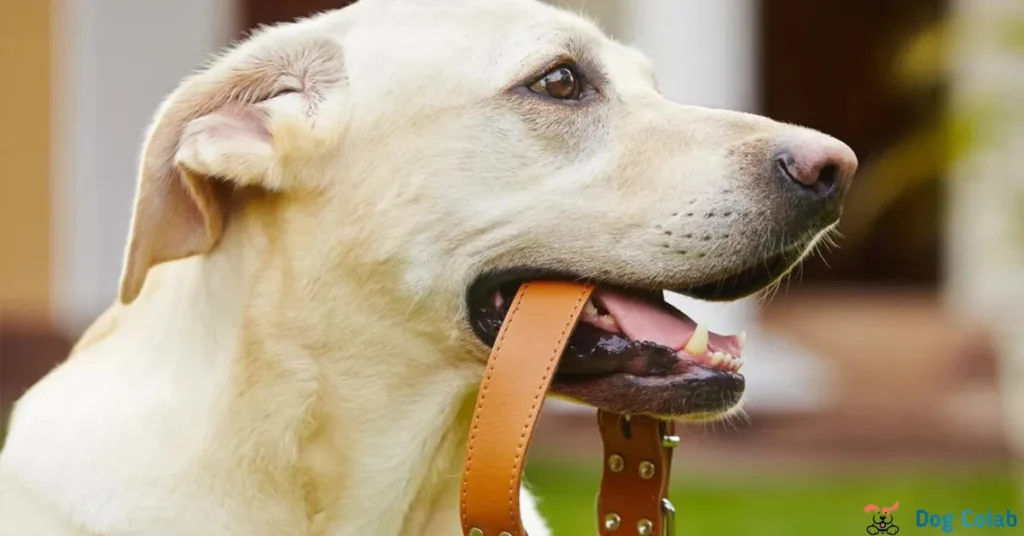
Additionally, the collar is often associated with positive experiences like going for walks, playtime, or being outdoors. Dogs form attachments to objects and rituals that bring them comfort and predictability, and the collar can fulfill that role.
However, it’s important to note that not all dogs become intensely attached to their collars. Some may view them simply as a practical accessory and not exhibit any emotional attachment. Each dog’s temperament and experiences will influence their response.
It’s essential to respect a dog’s individual preferences and comfort levels when handling their collar.
Recommended Also Read:- Should my dog sleep with his collar on.
Why Do Dogs Get Upset When You Remove Their Collar?
Dogs may exhibit signs of upset or discomfort when their collar is removed for several reasons. Here are a few possible reasons.
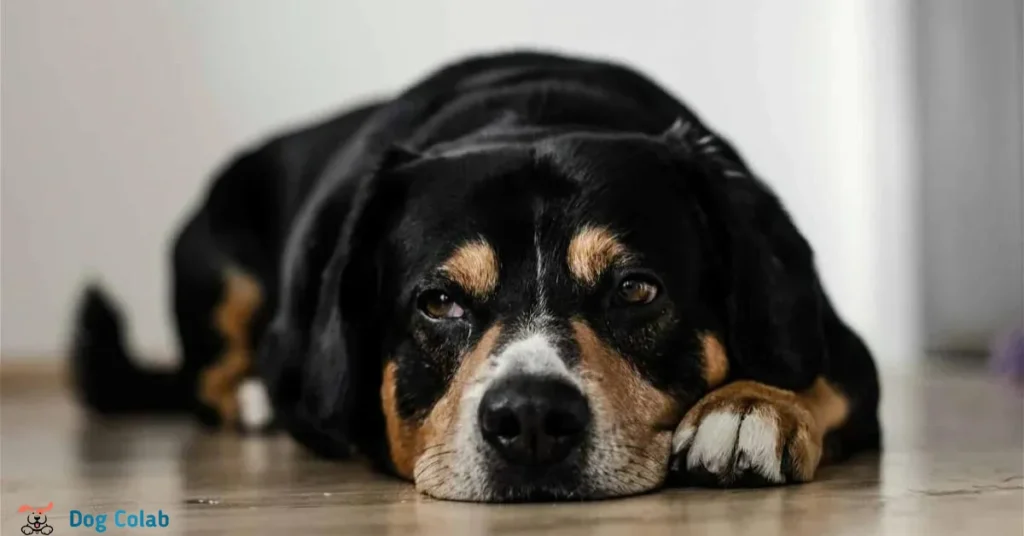
1. Sensitivity or Discomfort
Some dogs have sensitive skin or neck areas, and the pressure or contact of the collar may be soothing or familiar to them. When the collar is removed, they might experience a temporary feeling of discomfort or the absence of that comforting sensation.
2. Association With Activities
Dogs often associate the collar with certain activities, such as going for walks, playtime, or being outdoors. Removing the collar might signal the end of these activities, leading to a sense of disappointment or frustration.
3. Loss of Security
Dogs generally form attachments to familiar objects, and a collar becomes a part of their routine and identity. Removing the collar could make them feel vulnerable or insecure, as they may rely on it as a symbol of their place within the family or pack.
4. Change In Routine
Dogs are creatures of habit, and any alteration to their routine can be unsettling. Removing the collar represents a change in their daily ritual, which may lead to a temporary upset until they adapt to the new situation.
5. Previous Negative Experiences
If a dog has experienced discomfort or pain during collar removal in the past, it may anticipate a similar experience and exhibit signs of distress as a result of the association.
Why Does My Dog Like His Collar?
Dogs can display possessive behavior toward their collar for various reasons. Here are a few possible explanations.
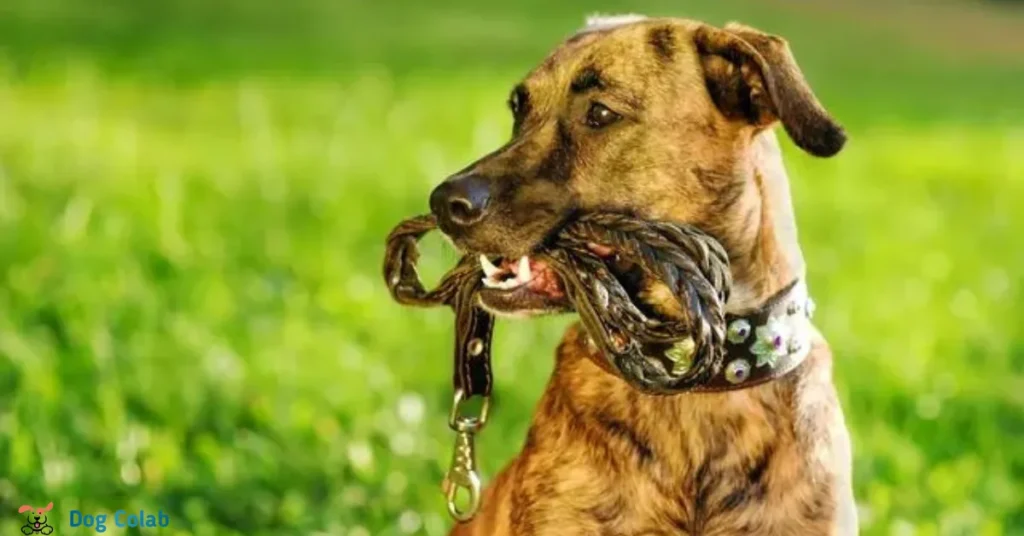
1. Resource Guarding
Dogs have a natural instinct to guard valuable resources, and their collar may be seen as a valuable possession. They may perceive it as something that belongs to them and want to protect it from being taken away by others, including their owners.
2. Security and Comfort
Dogs often form attachments to familiar objects, and their collar can become a source of security and comfort. It may have their scent and be associated with positive experiences, such as going for walks or spending time with their owners. Possessing their collar gives them a sense of ownership and control over something that provides them comfort.
3. Lack of Trust or Fear
Dogs that have had negative experiences related to collar handling or have a general lack of trust may become possessive of their collar. They may fear that it will be taken away or associate collar removal with negative events such as punishment or discomfort.
4. Lack of Boundaries or Training
If a dog hasn’t been properly trained or has not learned to respect boundaries, possessive behavior can develop. This can extend to objects like their collar, where they may feel entitled to keep them to themselves.
5. Inconsistent or Negative Experiences
If a dog has had inconsistent or negative experiences related to their collar, such as rough handling or being forcibly restrained, it may develop possessive behavior as a defensive response.
Why Does My Dog Growl When I Take His Collar Off?
There could be several reasons why your dog growls when you take his collar off. Dogs use growling as a way to communicate their discomfort, fear, or agitation.
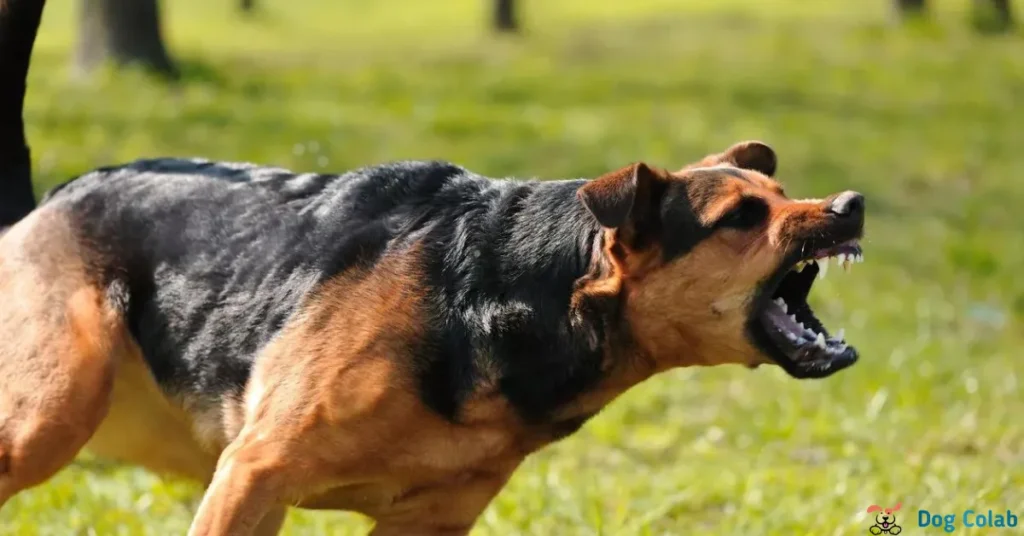
1. Pain or Discomfort
It’s possible that your dog is experiencing pain or discomfort when you remove his collar. This could be due to an underlying medical condition, a sensitive area around his neck, or even a previous negative experience associated with collar removal.
2. Protective Behavior
Some dogs may growl when their collar is being removed because they perceive it as a threat to their safety or territory. They may view their collar as a form of protection and feel vulnerable without it. In such cases, the growling is a warning signal to communicate their desire to maintain control over their personal space.
3. Resource Guarding
Dogs sometimes exhibit resource-guarding behavior, which means they become possessive of certain items, such as their collar. Growling during collar removal could indicate that your dog considers the collar as his possession and is protecting it from being taken away.
4. Negative Association
It’s possible that your dog has had a negative experience associated with collar removal in the past. This could be related to discomfort, pain, or an aversive training method used during collar handling. Such negative associations can lead to fear or anxiety when the collar is removed, resulting in growling.
5. Lack of Training or Socialization
If your dog hasn’t been properly trained or socialized, he may not be accustomed to having his collar removed. This lack of exposure to collar handling and unfamiliarity with the process could contribute to his growling response.
Do Dogs Like Their Collars Taken Off?
The preference of dogs regarding the removal of their collars can vary from one individual to another. While some dogs may not mind having their collars taken off, others may exhibit signs of discomfort or distress.
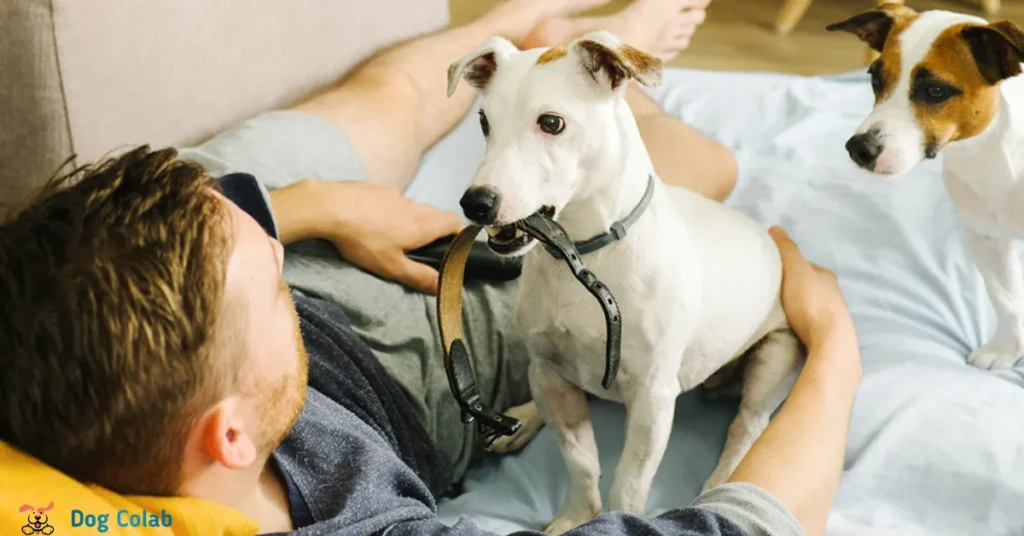
For many dogs, the collar becomes a familiar and comforting accessory. It becomes associated with activities they enjoy, such as going for walks or playtime. Thus, the act of removing the collar may signal the end of these enjoyable experiences, leading to a temporary sense of disappointment or frustration. Additionally, the collar can provide a sense of security and familiarity for some dogs. It becomes part of their routine and identity, and removing it might make them feel vulnerable or insecure.
However, there are dogs that may not mind collar removal or even show signs of relief. It depends on their individual temperament, previous experiences, and training. If a dog has had negative experiences associated with collar removal in the past, such as discomfort or pain, it might exhibit signs of distress when its collar is taken off.
To determine whether a dog enjoys having their collar taken off or not, it’s essential to observe their behavior and body language. Some signs that a dog might enjoy collar removal include relaxation, a wagging tail, and engaging in normal behaviors without signs of distress or anxiety.
Is It OK To Leave My Dog’s Collar On All the Time?
It is generally not recommended for a dog to wear its collar all the time. While dogs wear collars for identification and to attach a leash during walks, it is important to allow them some collar-free time for a few reasons.
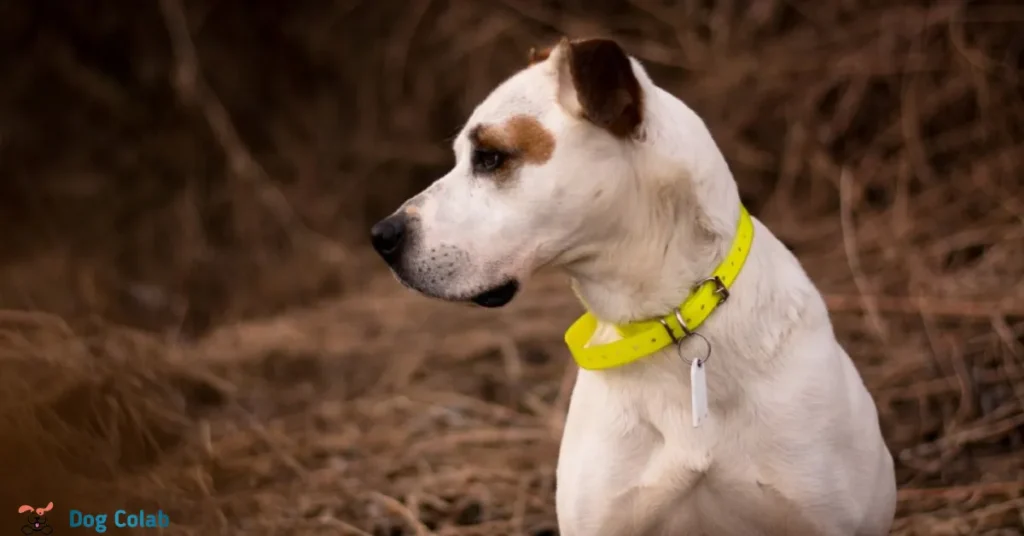
1. Comfort and Safety
Continuous dog-wearing collars can cause discomfort and irritation, particularly if the collar is too tight or made of materials that chafe the skin. It can also lead to hair loss and skin issues in the neck area. Additionally, collars can pose a safety risk if they get caught on objects, potentially leading to injury or strangulation.
2. Skin and Coat Health
Regular removal of the collar allows the skin to breathe and reduces the chances of moisture becoming trapped under the collar. This can help prevent skin infections and other dermatological issues. It also allows the coat to grow and be properly maintained.
3. Behavioral Associations
Some dogs associate the presence of a collar with specific activities, such as going for a walk or receiving training. Removing the collar during rest periods helps them differentiate between active and relaxation times, promoting a more balanced behavior and reducing potential anxiety.
When Is the Right Time to Remove a Dogs’ Collar Off?
The right time to take a dog’s collar off primarily depends on the circumstances and the dog’s specific needs. However, removing the collar is more beneficial.
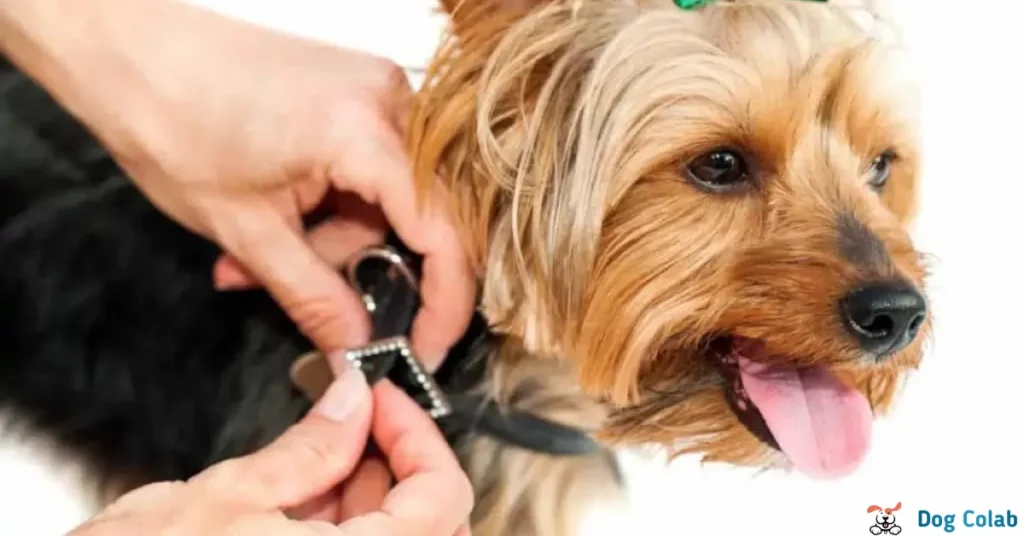
Firstly, when a dog is indoors and closely supervised, such as in a secure and familiar environment, it may be advisable to remove the collar. This can prevent the collar from getting caught on objects or furniture, reducing the risk of accidental injury.
Secondly, during rest periods or when a dog is left unattended, it can be beneficial to remove the collar to allow the neck area to breathe and relax. This is particularly important for dogs with sensitive skin or those prone to skin irritations.
Lastly, during activities such as swimming or play sessions with other dogs, removing the collar can prevent it from becoming wet, dirty, or tangled with other dogs’ collars.
Reading Tip:- Should dogs wear collars all the time.
If the Dog Won’t Let You Remove Its Collar, What Should You Do?
If your dog is uncomfortable with having its collar removed, there are a few steps you can take to help them become more cooperative.
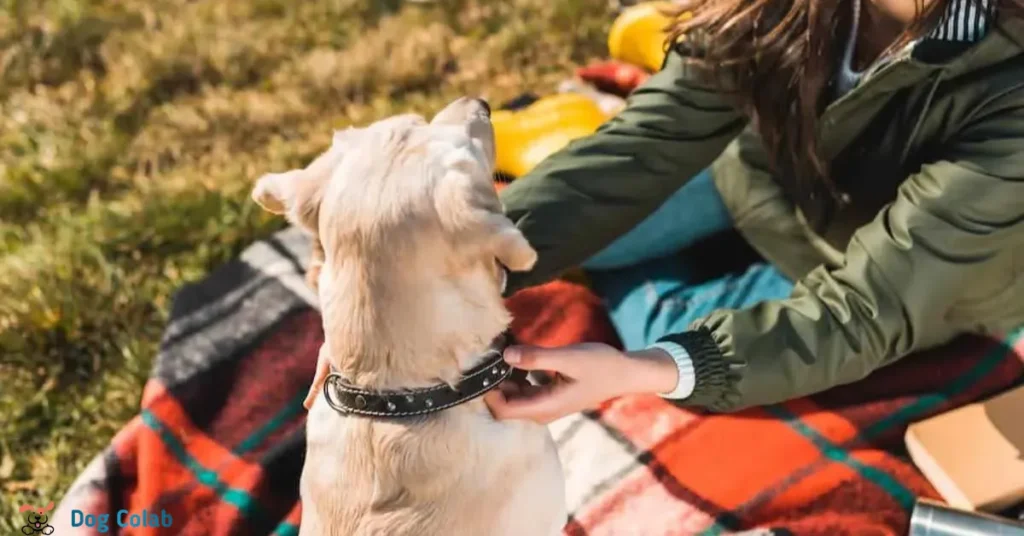
- Create a Positive Association: Associate the act of collar removal with positive experiences and rewards. Before attempting to remove the collar, offer your dog a treat or engage in a favorite activity. This will help your dog associate collar removal with something enjoyable.
- Gradual Desensitization: If your dog is particularly anxious or fearful about having the collar removed, you can desensitize them to the process. Start by touching the collar gently for short durations, offering treats and praise during and after each interaction. Gradually increase the duration of contact over time until your dog feels more comfortable.
- Counter Conditioning: Combine collar removal with something your dog loves, such as a tasty treat or a favorite toy. Hold the treat or toy close to your dog’s nose, and as they focus on it, gently and slowly remove the collar. Once the collar is off, reward your dog with the treat or toy and offer praise. This will help them associate collar removal with positive outcomes.
- Distraction Technique: Engage your dog in an enjoyable activity or provide a puzzle toy filled with treats. While they are distracted, calmly and gently remove the collar. This can help reduce their focus on the collar removal process.
- Training and Obedience: Teach your dog basic obedience commands like “sit,” “stay,” and “down.” By reinforcing their training and establishing a strong bond, your dog will be more likely to comply with collar removal as part of their overall training routine.
Recommended Also Read:- How tight should my dog’s collar be.
Choose the Right Collar For Your Dog
Choosing the proper collar for your dog is essential for their safety, comfort, and overall well-being. Here are some important considerations when selecting a collar.
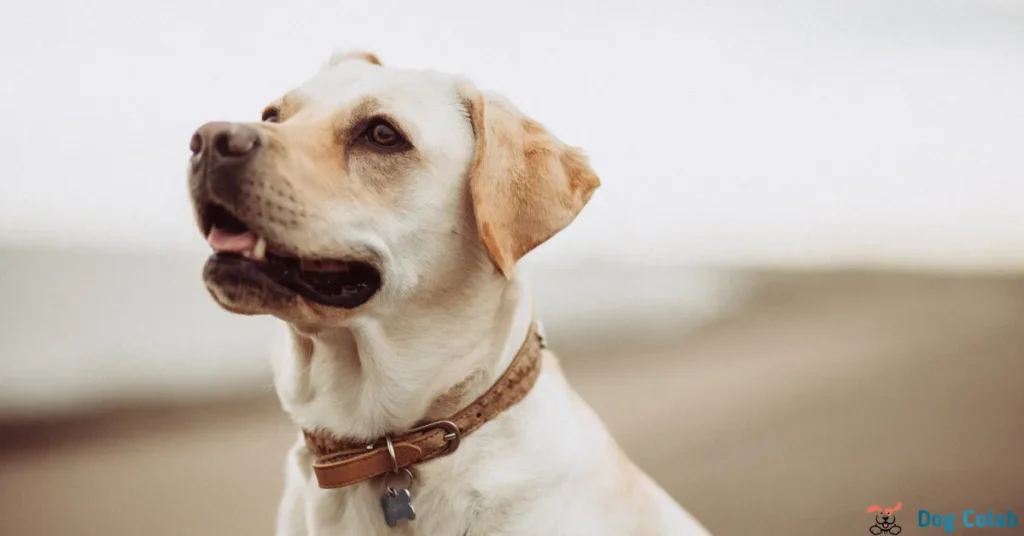
- Size and Fit: The collar should fit your dog properly. It should be snug enough to prevent slipping off but not too tight to restrict breathing or cause discomfort. Choose a collar size based on the circumference of your dog’s neck.
- Material: There are various types of collars, including nylon, leather, and fabric. Consider your dog’s activities and lifestyle when choosing. Nylon collars are easy to clean and durable, while leather collars are stylish but may require more maintenance.
- Safety Features: Opt for collars with safety features like breakaway buckles or reflective strips for enhanced visibility during nighttime walks. Breakaway buckles are designed to release under pressure, reducing the risk of choking or injury if the collar gets caught on something.
- Comfort: Look for collars with padded or rolled edges to prevent chafing or irritation on your dog’s neck. Avoid collars with rough or abrasive surfaces.
- Purpose: Consider the purpose of the collar. For everyday use, a standard buckle collar might suffice. However, certain activities like training or walking strong pullers might require a martingale collar or a harness.
Recommended Also Read:- How to loosen a dog collar.
Conclusion “Why Does My Dog Want His Collar On”
There are several reasons why won’t my dog let me remove his collar. Firstly, a collar may provide a sense of security and comfort to the dog, serving as a familiar and constant accessory.
Additionally, dogs may associate the collar with enjoyable activities such as going for walks or receiving attention from their owners, and wearing a collar can symbolize belongingness to a pack or family, reinforcing the dog’s social connection.
However, it is essential to ensure that the collar is comfortable and properly fitted to prevent any discomfort or harm to the dog.
NOTE:- You can find more information by clicking this link.
FAQs
1. Is it good to take your dog’s collar off?
It is generally safe to remove your dog’s collar when they are indoors or in a secure area to prevent accidents or discomfort. However, it is important to have identification tags on the collar when your dog is outside for their safety.
2. Why does my dog get aggressive when I grab his collar?
Your dog may become aggressive when you grab his collar due to fear, discomfort, pain, or past negative experiences associated with collar grabbing.
3. Why Does My Dog Freak Out When I Take His Collar Off?
Your dog may associate the removal of the collar with the end of walks or outdoor activities. It could also feel vulnerable without the collar’s sense of security and familiarity.
4. Why does my dog hate it when I take her collar off?
Dogs may dislike having their collars removed because they associate it with the end of a walk or playtime, or they may feel a sense of vulnerability without the collar’s familiar weight and presence.
5. Why is my dog calmer with a collar on?
The collar may provide a sense of security and comfort to your dog, similar to a gentle hug. It can also serve as a visual reminder of boundaries, helping your dog feel more relaxed and focused.
